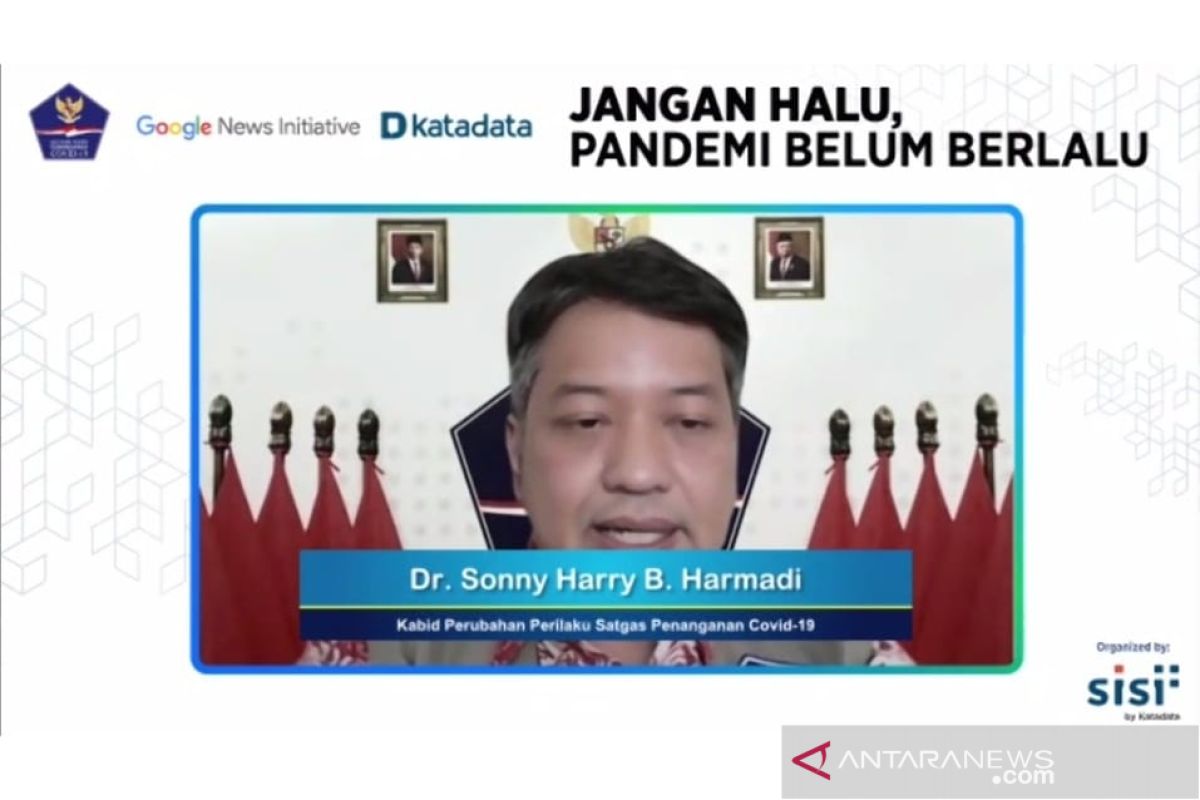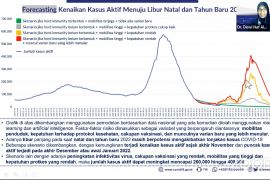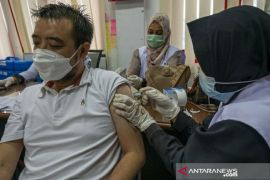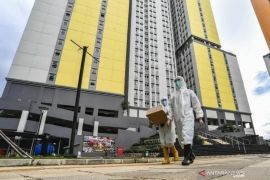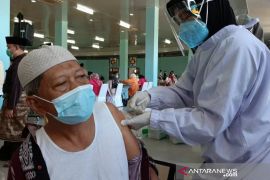The government will continue to control the spread of the virus despite the declining trend in positive cases in Indonesia. This is in line with the precautionary measures against a potential third wave.
"The pandemic is not over. Right now, several countries are experiencing a fourth or even a fifth wave as indicated by a drastic increase in daily cases. This proves that the pandemic is far from over in the world," he stated during an online discussion on Monday.
Moreover, the task force head hinted at the likelihood of Indonesia experiencing an increase in the number of positive cases of COVID-19. The long holidays, such as Eid al-Fitr as well as Christmas and New Year holidays, are major challenges for the government in controlling the spread of the virus.
For instance, after the 2020 Christmas and New Year holidays, the number of COVID-19 cases had increased by 37-78 percent. However, after the Eid-al Fitr holiday in 2021, the spike in cases was drastic, at around 104-473 percent.
"We learn that after the long holiday, the number of cases can potentially spike, as the community mobility increases," he noted.
The government had taken precautionary measures to prevent the surfacing of the third wave by prohibiting state civil apparatus (ASN), members of Indonesia Defense Forces (TNI), National Police (Polri), State-Owned Enterprises employees, and private company employees from taking collective leaves during the year-end holidays.
Related news: A closer look at the role of restrictions in curbing infections
The government had also removed the collective leave on December 24, 2021.
Harmadi affirmed that the government had regulated restrictions on community mobility, tightened health protocols at all public facilities, and supervised the implementation of control policies down to the community level.
In addition, the government will continue to improve testing and tracing as well as intensify vaccinations.
"If testing is lowered, the vaccination coverage is slowed down, or health protocols are weakened, then it could cause a spike in cases," he explained.
Harmadi pressed for the community's participation for the implementation of strict health protocols. The community must also be cooperative in implementing testing, tracing, and vaccination programs.
As of November 21, 2021, as many as 134,418,286 people had received the first dose of vaccination, while 89,220,341 people were administered the second dose of the vaccine. The third dose of vaccine was given to 1,203,846 health workers.
The government is targeting to vaccinate 208,265,720 people to achieve herd immunity in the country.
Meanwhile, the number of daily confirmed cases on November 21 reached 314, a 99.46-percent decrease, from the peak of 56,757 daily cases on July 15. Active cases as of November 21 were recorded at 8,126, a 98.59-percent decrease from its peak of 574,135 active cases on July 24.
Related news: All regions must anticipate COVID transmission in schools: DPD speaker
Translator: Suci Nurhaliza, Resinta S
Editor: Rahmad Nasution
Copyright © ANTARA 2021
